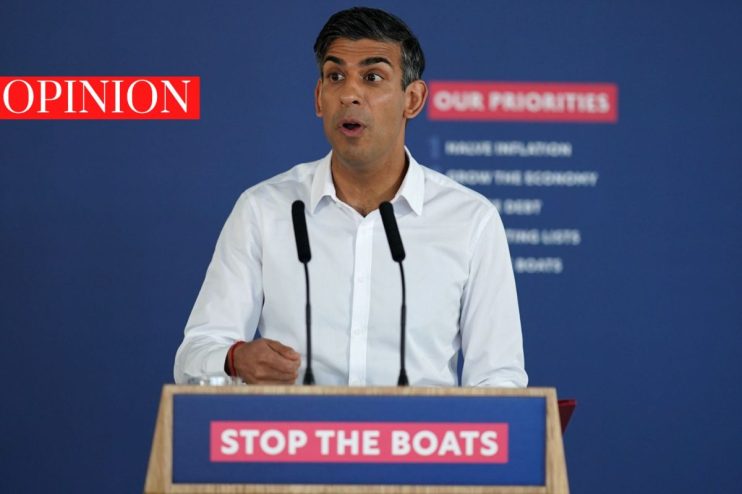Our political angst over the triple lock is a result of a deeply unfair tax system

It would be political suicide for Rishi Sunak to scrap the pensions triple lock, but the frustrations with it are part of how we tax income, rather than wealth, writes Will Cooling
The infamous pensions triple lock is once again in Westminster’s sights, with both the Prime Minister and Labour frontbenchers flailing over whether it will make it to their respective election manifestos. In part, this angst over the policy first introduced by Iain Duncan Smith in 2010 is because it may well lead to pensions rising by 8.5 per cent next year.
The triple lock is unusual, maybe even unique, in that it is a policy that the Tories introduced as they came into office and have largely stayed the course on. Today, the 2.5 per cent that the triple lock stipulates as the minimum annual increase, would be a devastating cut to the value of the old age pension in real terms, but several times during the 2010s it was a meaningful rise compared to the average increase in earnings or wages. At a time when inflation was low due to the aftermath of the financial crisis, the state was able to use its fiscal power to meaningfully increase the purchasing power of the poorest pensioners. If only other policy areas, like education, had benefited from ministers seizing a rare opportunity of low inflation and low interest rates.
Obviously, the return of high inflation means that it would be prohibitively expensive for pension rises to stay ahead of increases in wages and prices. And indeed, that recognition is built into the triple lock, with next year’s increase merely keeping pace with wages. Yes, there’s a technical argument about whether exceptional bonuses NHS workers received should be included in the wage statistics, but ultimately a statistical quirk that may cost the government an additional £1bn is nothing against a pensions budget that stands at more than £120bn.
Whether it is the state or working families, old people need someone to look after them. No middle-aged or young person is going to thank the government for leaving their parents or grandparents with no money for life’s essentials. And if the state pension once again starts losing value over time as it did throughout the eighties and nineties, then it will actually be the young who will stand to lose out the most. After all, it will be them being forced to put more aside for their retirement out of fear that they cannot rely on the state pension as much as today’s pensioners can. Especially as they are less likely to have generous “defined benefit” pensions that the middle-aged were allowed to enter before the private pensions system started to implode.
It makes no sense to promise that the state will look after people in their old age, only to then refuse to allocate enough money to provide everyone with a pension of sufficient worth. If politicians really feel we can’t afford such a universal benefit due to changing demographics, then they should have the honesty to say so, and suggest what means-tested safety net they want to put in its place. Of course, they won’t do that, because unpicking a century-old promise to allow all people to ultimately retire in dignity and comfort, would be political suicide.
In that case, rather than constantly talking at conferences about difficult decisions, politicians should start making some. If we need to raise more money to fund the triple lock, then increase taxes in a way that spreads the burden fairly.
Given the wider changes to the state pension, the continued existence of personal national insurance contributions now makes even less sense than before. Folding such contributions into income tax would reduce the burden placed on lower income workers and close the loophole where pensioners pay less tax on the income they earn than other people. Introducing a national property tax which was more tightly linked to a house’s value today would again reduce the burden placed on poorer Britons while taxing wealth more heavily. If such a tax was set at 1 per cent, it could raise more than £50bn a year, even after accounting for scrapping the current council tax system. Such tax bills may even persuade elderly empty nesters to downsize, freeing up much needed houses for young families.
One can sympathise with the frustration many feel as old age pensions have been better protected than other benefits or services. But the solution is not to trash the one thing that has improved under thirteen wasted years of Tory government. It is to insist that politicians take the difficult decisions to provide the public with the services and benefits they need, even if that means taxes have to go up.
